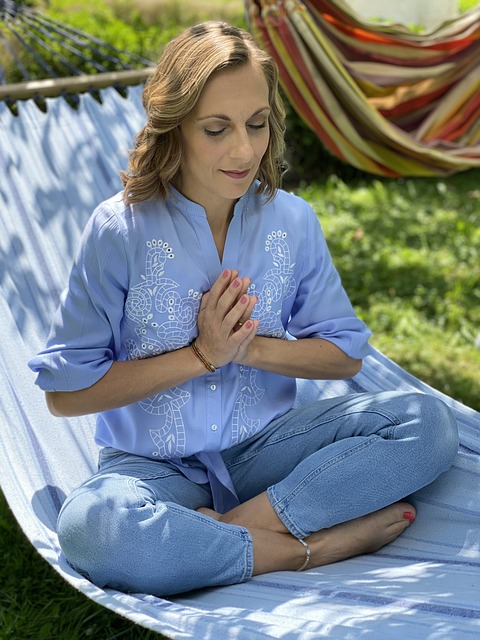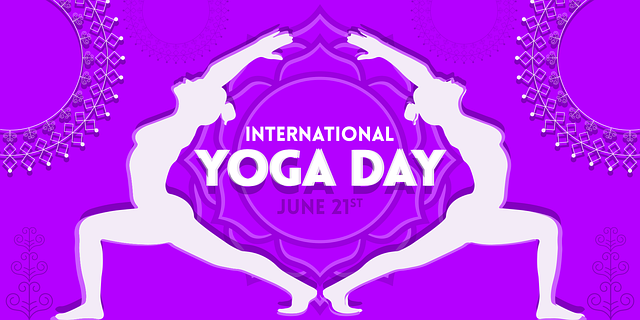Resilience, a vital skill for overcoming life's challenges, is enhanced through meditation practices. Regular sessions improve emotional control, problem-solving abilities, and cultivate positive mindsets, enabling individuals to stay calm under pressure and make rational decisions during stressful situations. Physical activity and mindful movement further bolster resilience by releasing endorphins, reducing stress, and improving mood. Building a supportive network through meaningful relationships and group meditation sessions creates strong support systems for managing stress collectively.
Stress and adversity are inevitable parts of life, but cultivating resilience can help us navigate these challenges with grace. This article explores powerful techniques for building mental fortitude and managing stress, offering a holistic approach to thriving in the face of adversity. From understanding the foundation of resilience to incorporating mindfulness through meditation practices, physical activity, and supportive connections, discover strategies to enhance your ability to bounce back and find inner peace amidst life’s storms.
- Understanding Resilience: Building a Foundation for Overcoming Adversity
- Meditation Practices: A Calm Haven in the Storm of Stress
- Incorporating Physical Activity and Mindful Movement into Your Routine
- Cultivating a Supportive Network: The Power of Connection and Community
Understanding Resilience: Building a Foundation for Overcoming Adversity

Resilience is the ability to adapt and bounce back from adversity, and it’s a vital skill in today’s fast-paced world. Understanding what resilience means is the first step in building a strong foundation to overcome challenges. It involves recognizing that setbacks are a natural part of life and developing strategies to navigate through them. By cultivating resilience, individuals can transform stress and difficult situations into opportunities for growth.
One effective method to foster resilience is through meditation practices. Meditation helps individuals gain better control over their thoughts, emotions, and reactions. Regular meditation sessions can teach you to stay calm under pressure, enhance your problem-solving skills, and promote a positive mindset. These practices allow you to step back from stressful situations, gain clarity, and make more rational decisions, ultimately strengthening your ability to face adversity head-on.
Meditation Practices: A Calm Haven in the Storm of Stress

In the midst of stressful times, finding moments of calm through meditation practices can be a game-changer in cultivating resilience. This ancient technique has gained prominence in modern stress management due to its effectiveness in quieting the mind and reducing anxiety. By focusing on breath and mindfulness, individuals can create a mental sanctuary, enabling them to navigate life’s challenges with enhanced clarity and composure.
Meditation isn’t just about stilling thoughts; it’s an opportunity to foster self-awareness and emotional intelligence. Regular practice encourages individuals to observe their reactions to stress, fostering a sense of detachment that empowers better decision-making. This simple yet profound act of introspection allows for a deeper connection with one’s inner strength, making it easier to bounce back from setbacks and maintain mental balance in the face of adversity.
Incorporating Physical Activity and Mindful Movement into Your Routine

Incorporating regular physical activity and mindful movement into your daily routine is a powerful strategy for cultivating resilience and managing stress. Exercise releases endorphins, often referred to as ‘feel-good’ hormones, which can reduce feelings of pain and promote an overall sense of well-being. Even short bursts of movement, like taking a brisk walk or engaging in gentle stretching, can significantly lower stress levels and improve mood. Moreover, physical activity provides a healthy outlet for processing emotions, allowing you to channel tension and anxiety into productive energy expenditure.
Mindful movement, such as yoga or tai chi, combines physical postures with an emphasis on breath awareness and present-moment attention. These practices not only strengthen the body but also train the mind to stay grounded and calm under stress. Meditation techniques, often integrated into mindful movement routines, teach individuals to observe thoughts without judgment, fostering a sense of detachment from stressful triggers. By combining physical exertion with mental focus, these practices enhance overall resilience, enabling individuals to better cope with life’s challenges.
Cultivating a Supportive Network: The Power of Connection and Community

Cultivating a supportive network is an often-overlooked yet powerful tool in the arsenal against stress and for building resilience. Human connection offers a sense of belonging and purpose, serving as a buffer against life’s challenges. Building this network involves fostering meaningful relationships with friends, family, and even colleagues who can provide emotional support and practical help during difficult times. Engaging in regular social interactions, whether through joint hobbies, community events, or simply checking in with loved ones, strengthens these bonds and creates a safe space to share experiences and emotions.
Meditation practices play a significant role in enhancing this network’s effectiveness. Mindfulness meditation encourages individuals to stay present during interactions, fostering deeper connections and understanding. It helps individuals become more attuned to others’ needs and better equipped to offer support without judgment. Moreover, group meditation sessions can create a sense of community, where shared experiences and practices strengthen the bond between members, providing a robust support system for managing stress together.
Cultivating resilience is an ongoing journey, and by incorporating various techniques such as meditation practices, regular physical activity, and building a strong support network, we can effectively manage stress and navigate life’s challenges. These strategies provide tools to foster mental fortitude, enhance emotional well-being, and promote a sense of calm amidst the chaos. Remember, in today’s fast-paced world, prioritizing self-care through these practices is crucial for maintaining resilience and overall health.
